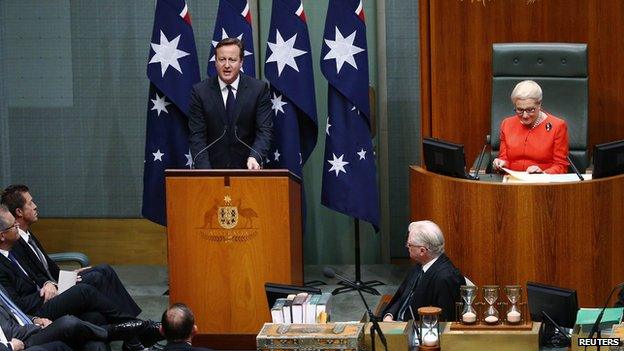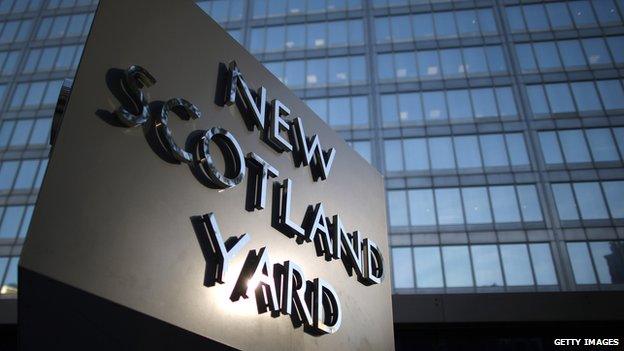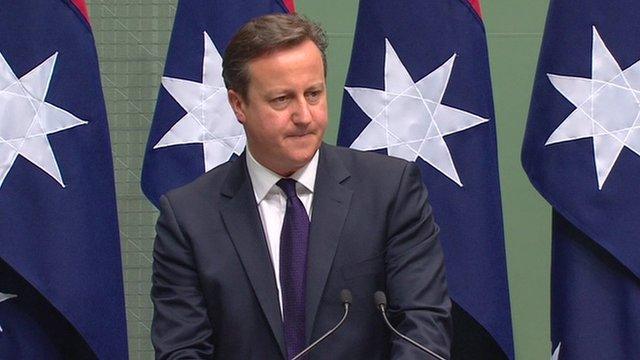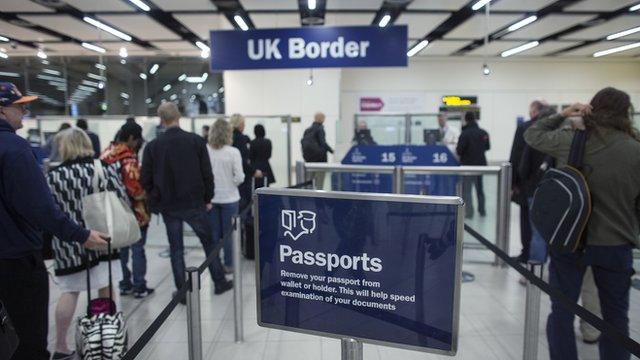Can UK stop jihadists coming home?
- Published

British jihadists could be prevented from returning home under powers outlined by David Cameron
After weeks of negotiations PM David Cameron and his deputy Nick Clegg have agreed on new measures to try to stop British jihadists fighting in Iraq or Syria returning to the UK.
The intelligence services have estimated there are about 500 Britons who have gone to fight for the group known as Islamic State (IS).
Under the proposals unveiled by the prime minister during his visit to Australia, British fighters could be banned from coming home for two years.
The plans form part of the Counter-Terrorism Bill that the government hopes will be law by the end of January.
But it is highly contentious and there are serious concerns about whether it is workable given other established laws on citizenship, immigration and human rights.
'Managed return'
Critics fear that excluding Britons from returning to the UK - even if they face the most serious national security allegations - could amount to making them stateless.
There are numerous questions that lawyers and politicians will have about the legality of what is being proposed.

Mr Cameron also promised new powers to enable police to seize passports from would-be jihadists
First, there are the other countries involved. Will Turkey be happy to detain - for potentially months on end - a Briton suspected of illegally fighting for a terrorist organisation if he turns up at Ankara airport but is banned from departing for the UK?
It is not clear if the British government has negotiated any agreements at this stage.
There is also the question of why these people need to be excluded in the first place. Can't they be arrested and charged with supporting terrorism as soon as they arrive back?
A senior government source emphasised that exclusion would be temporary and said the aim was to establish a "managed return", which would allow British jihadists to come home if they agree to certain conditions.
One of those could be Terrorism Prevention and Investigation Measures (TPims).
But herein lies another problem: these conditions are being proposed based on suspicion of involvement in terrorist activity abroad.
Yet there is a higher burden of proof for a TPim to be put in place at the moment, which is reasonable belief of involvement in terrorism.

The threat of returning UK jihadists has been identified as a key priority by counter-terrorism officers
It is not just the proposals to invalidate passports and ban British jihadist suspects that are problematic.
The coalition also wants to give the police and some border officers new powers to seize passports of anyone at the border who they have reasonable suspicion is travelling to engage in terrorist-related activity. Passports could be seized for 30 days.
But it is apparent that the police already have existing powers to seize passports for seven days, without suspicion. If this is used, why is a new power to retain a passport for longer needed?
And if reasonable suspicion is needed then why, a lawyer might say, can't the suspect be arrested and face prosecution?
These are all questions that Home Office lawyers would have wrestled with over the past two months as they looked for a viable, legal and effective way to try to deal with a problem that is top of the list for MI5 and Scotland Yard's counter-terror command.
- Published14 November 2014

- Published14 November 2014

- Published1 September 2014

- Published1 September 2014
- Published15 October 2013
